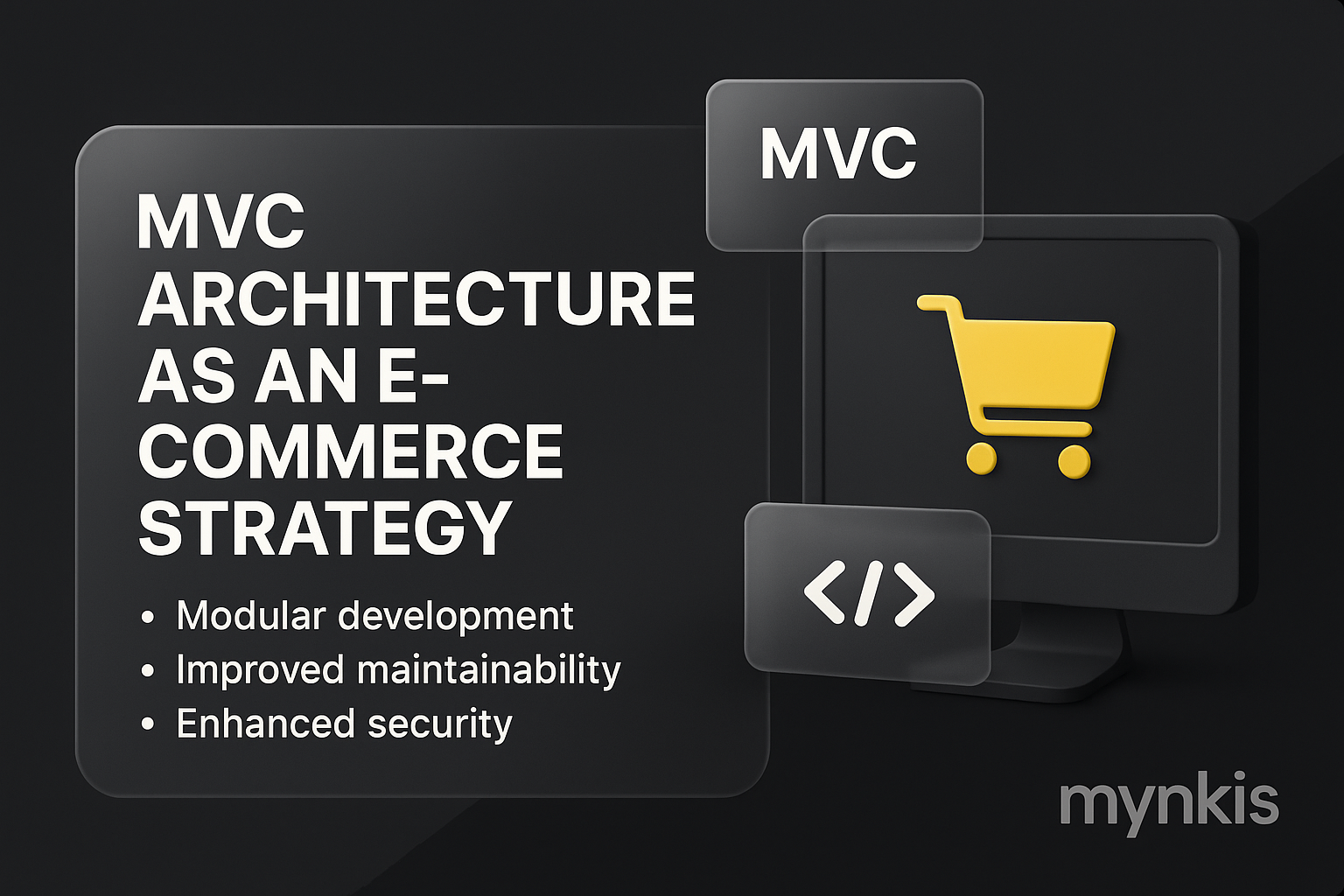Schedule a Demo
When it comes to crafting a robust online store, retailers are on a constant quest for solutions that drive visibility and enhance user experience. The Model View Controller (MVC) architecture is a game-changer in this arena, not just for developers but also for savvy business leaders looking to refine their ecommerce strategy. MVC stands out because it systematically decouples the user interface from business logic and data management, offering a clear path to better SEO optimization and an engaging shopping environment that doesn't lean on ads to boost traffic.
I've witnessed firsthand how MVC revolutionizes ecommerce development. By dividing the application into three interconnected components, developers can work on each element without affecting the others, significantly speeding up the development process. The model handles the data and business logic, the view is responsible for displaying the data to users, and the controller manages the interaction between the model and the view. This separation of concerns ensures that changes to the database structure or a revamp of the user interface won’t necessitate a complete overhaul, making your site adaptable to evolving market demands.
In my work with retailers, I've seen how the MVC model can cut through the complexity of managing an online store. For instance, a business needing to alter its product data structure can do so in the model without touching the view. This allows the website's front end to reflect these changes immediately, keeping the user experience intact while ensuring the backend stays up to date with business needs.
SEO is the silent hero of ecommerce, driving organic traffic to your online store. MVC architecture, with its clear separation of concerns, makes it easier to fine-tune your site for search engines. I've collaborated with SEO experts who emphasize the importance of maintaining clean, SEO-friendly URLs—a task simplified by MVC’s structured approach to routing and linking.
Moreover, the controller in MVC can help manage the flow of requests and responses, enabling you to craft SEO strategies that integrate seamlessly with your site’s design and functionality. You can refine meta tags, implement dynamic content, and ensure faster page loads—factors that significantly impact your Google rankings—without disrupting the shopping experience.
The key to retaining customers online is a user experience that feels personal and responsive. With MVC, customizing the view to deliver targeted content becomes straightforward, which is crucial in an era where shoppers demand a more tailored experience. Whether it's adjusting the layout based on user history or showcasing new arrivals dynamically, MVC’s flexibility allows you to present your store in the best possible light.
From a technical standpoint, MVC’s streamlined nature can reduce the number of server requests and optimize page rendering times. This isn't just theory; in practice, I've seen reduced loading times translate into higher user satisfaction rates, fewer abandoned carts, and, ultimately, increased sales.
The retail landscape is competitive and ever-evolving. Adopting an architecture like MVC empowers you to adapt and grow without constant rebuilds. I've worked with businesses looking to scale their operations, and with MVC, the same codebase can accommodate new product categories, international marketplaces, or even a major shift in business strategy with minimal disruption.
This scalability is critical for retailers because it means your technology framework can grow with your business, ensuring that as your offerings expand, your website remains a robust platform capable of supporting an increasing load without compromising performance.
Another undeniable advantage of MVC is its support for collaborative development. In a recent project with an innovative fashion retailer, the team was able to simultaneously work on different components without stepping on each other's toes. This parallel development accelerates the release of new features, keeping your site fresh and competitive.
With developers on the business side focusing on the model, user interface specialists optimizing the view, and technical experts fine-tuning the controller, the synergy can lead to a product that reflects the multifaceted needs of your customers. I’ve seen companies leveraging this aspect of MVC to push boundaries in their market and deliver experiences that align with consumer expectations.
Of course, no system is without its challenges. Learning and adapting to MVC can require an initial investment in training and development, but consider this as laying down a solid foundation for long-term growth and efficiency. I've navigated these waters with clients and have found that, once over the initial learning curve, the benefits far outweigh the temporary hurdles.
To minimize these challenges, it’s essential to plan your MVC implementation meticulously. A phased approach, with clear milestones and ongoing reviews, can transform what might seem overwhelming into a smooth transition toward a more efficient, scalable website.
Looking to the horizon of ecommerce, technologies like MVC are just stepping stones towards more dynamic and personalized shopping platforms. Studies from renowned tech outlets like TechRadar highlight the movement towards Progressive Web Apps (PWAs), augmented reality shopping, and machine learning algorithms which integrate seamlessly with the MVC's backbone to deliver the next generation of online retail experiences.
Although the future is not entirely mapped out, my experiences with businesses leveraging MVC suggest that staying abreast of these developments will position retailers at the forefront of their industries. This proactive approach is essential, ensuring your online presence continues to evolve alongside technological trends and consumer expectations.
